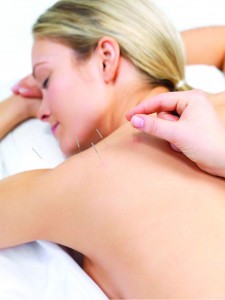The unwanted, unhealthy, un-returnable gift that keeps on giving
 It was not surprising to learn that holiday weight gain ranked second in what people dread most about the holidays. Gaining weight is on the minds of many Americans and for good reason. According to the National Center for Health Statistics (NCHS) of the Centers for Disease Control and Prevention (CDC), the National Health and Nutrition Examination Survey (NHANES) revealed, when adjusting for age, an estimated 34.2% of American adults 20 years of age and older were overweight, while 33.8% were obese (Ogden & Carroll, 2010). The overall prevalence estimates for overweight and obesity when combined for adults 20 years of age and older (BMI 25) was a stunning 68.0% (Ogden & Carroll, 2010). Another way to think about the overweight and obesity epidemic is that less than a third of adults (i.e., 31.6%) in the United States are at a healthy weight.
It was not surprising to learn that holiday weight gain ranked second in what people dread most about the holidays. Gaining weight is on the minds of many Americans and for good reason. According to the National Center for Health Statistics (NCHS) of the Centers for Disease Control and Prevention (CDC), the National Health and Nutrition Examination Survey (NHANES) revealed, when adjusting for age, an estimated 34.2% of American adults 20 years of age and older were overweight, while 33.8% were obese (Ogden & Carroll, 2010). The overall prevalence estimates for overweight and obesity when combined for adults 20 years of age and older (BMI 25) was a stunning 68.0% (Ogden & Carroll, 2010). Another way to think about the overweight and obesity epidemic is that less than a third of adults (i.e., 31.6%) in the United States are at a healthy weight.
There are a number of claims made in the literature about how much weight people gain during the holidays. Depending on whom you read or listen to about it, the amount of weight gain from Thanksgiving to New Year’s Day could range from 1-10 pounds. There are ways to avoid this trap. Try these simple strategies and you can still eat, drink, and be merry without ending up looking as plump as Santa Claus:
Hydrate:
While rushing around shopping and preparing for guests it’s easy to forget to drink plenty of water. Try to get in at least eight glasses a day. Your body easily confuses being hungry and being thirsty, so drinking water regularly will keep you from eating when what you really need is to hydrate.
Limit Alcohol Intake:
Alcohol calories add up fast. A 12-ounce beer has 140 calories and a 5-ounce glass of wine has 100. Plus having too many drinks lowers your inhibitions, so when you imbibe you’re likely to eat more. Decide how many drinks you will have at holiday parties beforehand and stick to your decision. Or plan to be the designated driver, and avoid alcohol all together.
Eat Slowly:
Research shows that slow eaters tend to eat less food. Try this: Swallow each mouthful before taking the next bite and chat with a table mate in between forkfuls.
Be Selective, Not Rigid:
Don’t declare all party food off-limits. It’s a strategy that’s bound to backfire: if you decide to deprive yourself of all treats, you may end up overindulging out of frustration and rebellion. Instead, be honest with yourself about what foods you’re really looking forward to and enjoy those in moderate amounts; at the same time cut back on high-fat and calorie-bomb snacks and fillers you really can live without.
Stay Active:
Exercise is probably the first thing to fall off your to-do list during the holidays, but it’s your best ally in the battle against holiday bulge—as well as holiday stress and depression. Don’t worry if you can’t maintain your regular workout routine due to travel or other commitments. Simply challenge yourself to add some physical activity to your day.
Incorporate Acupuncture:
While people seek out acupuncture for a variety of health problems and often come in with a long list of complex issues they want to address, many of them will ask if acupuncture can also help them lose weight. The answer is yes – along with healthy changes to diet and movement, acupuncture has been shown to dramatically impact weight in number of ways.
Where does acupuncture
fit into a weight loss plan?
Acupuncture can address just about every one of these aspects and greatly improve the results of a multi-faceted weight loss program. Let’s take a closer look at what acupuncture has to offer.
1. Acupuncture reduces food cravings and regulates appetite
Ear acupuncture is one of the most successful methods for addiction treatment, including food addiction and emotional eating where bingeing or constant nibbling serves to stuff down difficult emotions like sadness, anger, boredom and loneliness; or where sensations like pain, fatigue and thirst are mistaken for hunger.
Ear acupuncture stimulates the vagus nerve, the longest cranial nerve that is part of the involuntary nervous system and controls such automatic functions as regular heart rate and digestion.
In a randomized study by Sabina Lim and others (Graduate College of Basic Korean Medical Science at Kyung Hee University, Seoul, South Korea), 91 obese persons were randomly assigned to a group receiving stimulation of a five-needle protocol on the outer ear, a group receiving a single ear acupuncture point, or sham (fake) acupuncture. The five-needle group achieved the largest drop in waist circumference, as well as drop in body fat, followed by the one-needle group, and no change in the control group. The study was published in Acupuncture in Medicine on Dec 16, 2013.
2. Acupuncture regulates hormones
Acupuncture’s balancing effect on overall body chemistry, including hormones, is well-established. Acupuncture lowers stress hormones. It regulates sexual and reproductive hormones and is widely used in addressing menstrual, fertility and menopausal concerns.
An area of particular interest is the effect of acupuncture on obesity hormones.
Hunger and satisfaction are regulated by two hormones: grehlin stimulates hunger and initiates eating, while leptin suppresses food intake. Surprisingly, in obese people leptin in the bloodstream is increased, while grehlin is decreased. Obese people are considered not only insulin-resistant, but also grehlin-resistant. (Obesity Review, Jan 2007).
In a Turkish study reported in Acupuncture in Medicine, September 2012, 40 obese women were randomly assigned to receive acupuncture on five common points twice weekly for five weeks for a total of 10 sessions. The results showed that acupuncture lowered insulin and leptin levels and increased plasma grehlin in the treatment group, compared with a control group receiving sham acupuncture. Acupuncture also reduced the BMI (basic metabolic index).
The conclusion is that acupuncture can help normalize obesity hormones and the hunger response and contribute to improving metabolism.
3. Acupuncture reduces inflammation and pain
Acupuncture is mostly known for – and researched for – its ability to relieve pain, reduce inflammation and heal injuries.
Acupuncture promotes blood flow, which brings oxygen, nutrients, immune substances, hormones, pain killers and anti-inflammatories to the compromised area. Acupuncture needles create “micro traumas” that stimulate the body’s natural healing response. Acupuncture releases natural painkillers such as endorphins and enkephalins. Acupuncture relaxes tense muscles that put pressure on joints and impinge nerves.
About 3 million Americans visit acupuncturists each year, most of them for the relief of chronic pain. Now a new study shows the relief they get may be modest – but real.
The study is a review of previous acupuncture studies that compared the ancient Chinese practice to standard pain care or to sham acupuncture. In the latter, patients are needled in a manner different from (or at spots on the body not tied to) traditional acupuncture.
The researchers found that people who got acupuncture ended up having less pain than those who didn’t receive it. And the result was similar among different sources of pain, whether it was chronic back and neck pain, osteoarthritis, or headache.
In the end, their results translate to about 30% less pain compared to people taking pain medications and other standard treatments for pain.
4. Acupuncture improves digestion and metabolism
Acupuncture addresses many digestive problems, including GERD, reflux, stomach ulcers, IBS, diverticulitis and colitis. Acupuncture can help regulate digestion and elimination of toxins.
Chinese medicine describes the digestive process as a function of the stomach, which breaks food down, and the “spleen,” which transforms the nutrients from food into usable energy. What is termed the “spleen” here includes functions of the pancreas, the small intestine and the metabolic process on a cellular level. The Western medical equivalent of this spleen function is the mitochondria or the “powerhouses” of the cell that break down glucose and fatty acid for ATP, an energy-carrying molecule. Remember High School biology and the Krebs cycle? People with insulin-resistance have compromised mitochondrial function.
Acupuncture can help restore the body’s homeostasis, bringing back its optimal functioning.
In acupuncture lingo, we call it “Restoring the Qi” or the body’s vital energy.
5. Acupuncture reduces stress and increases relaxation.
Stress-reduction and increased relaxation are probably the biggest all-encompassing effects of acupuncture. The effects of stress, especially chronic, long-term stress, on lowered immunity, increased depression and anxiety, lack of sleep, and overall compromised health have been well-established.
Increased stress and lack of sleep lead to increased release of the stress hormone cortisol from the adrenal glands. Cortisol makes us feel hungry even when we are full. Loss of sleep also decreases levels of growth hormone, which regulates the proportion of fat to muscle. And lack of sleep interferes with carbohydrate metabolism. Plus, tired people tend to eat more for the short-term energy boost they gain, especially from carbohydrate-rich foods.
As we’ve seen, there are many factors that interfere with successful weight loss. The causes leading to obesity and the difficulties with losing weight are complex. A successful weight maintenance plan must address all these aspects. At Meng’s Acupuncture Medical Center we offer our patients a comprehensive approach to weight loss and pain management. For more information or to schedule a consultation, contact us at 561-656-0717.
Lose Weight, Reduce Stress,
Achieve Optimum Health
Call Today for Details and Schedule Your
FREE Consultation Appointment
561-656-0717
4060 PGA Bldv., Suite 202
Palm Beach Gardens
 South Florida Health and Wellness Magazine Health and Wellness Articles
South Florida Health and Wellness Magazine Health and Wellness Articles




